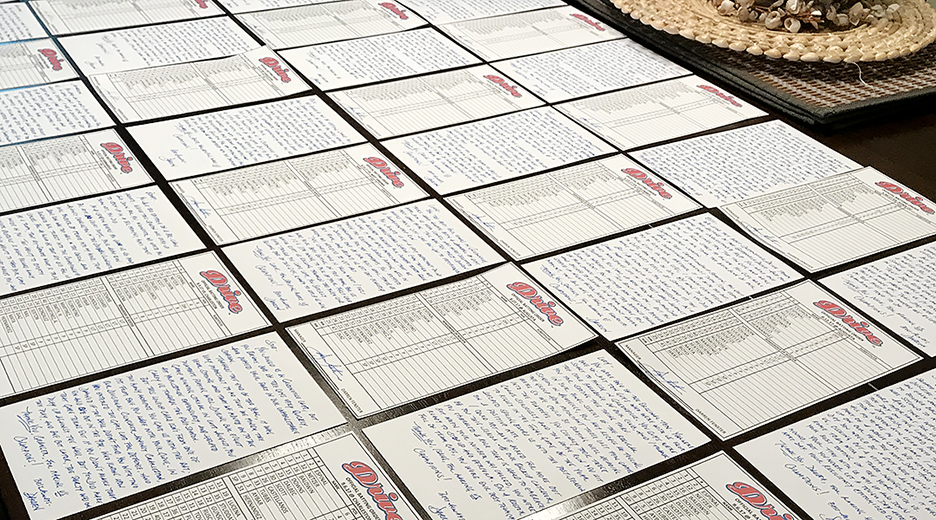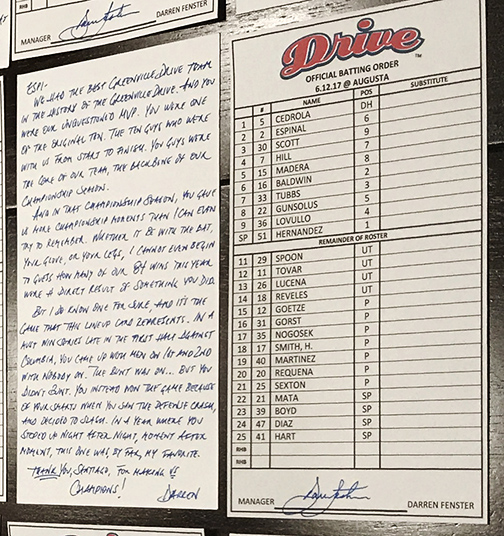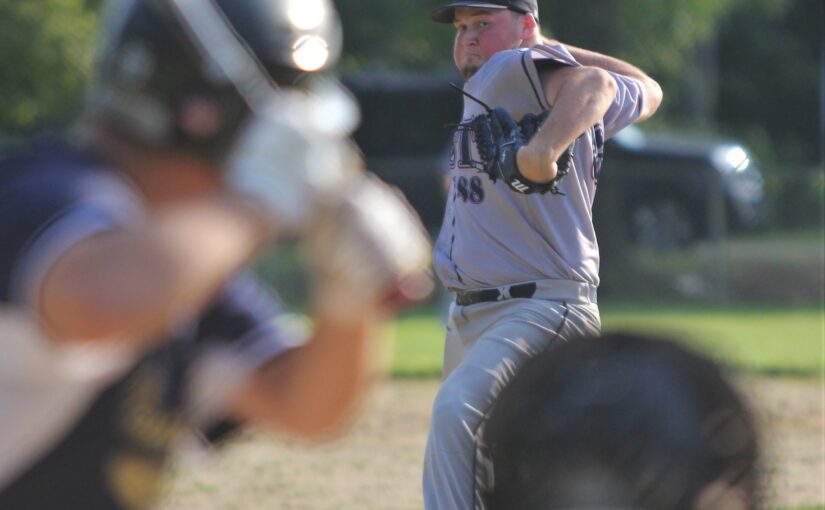‘Thank You:’ Showing appreciation to your athletes

Anson Dorrance, the legendary women’s soccer coach at the University of North Carolina, closes out each season with a senior letter. It’s a “thank you” to those who are playing their final season in a Tar Heel uniform, but on a much deeper level, it’s a heartfelt tribute expressing what each senior has meant not just to the program, but also to Dorrance.
Whether it was Mia Hamm, who is arguably the greatest women’s soccer player of all time, or someone who played sparingly in four years, every senior received a letter from Dorrance. And upon reading it, they felt like they left a lasting mark on the UNC program. The words in these letters are incredibly powerful and impactful.
It’s our job as coaches to make everyone realize that they are an important cog in our club…
But the senior letter isn’t just about seniors. Dorrance uses it as a motivational tactic to get more from the girls who aren’t seniors. Prior to playing in the title game, which Dorrance has done more than two dozen times, he’ll ask all of the seniors to leave the locker room before reading each senior letter to the underclassmen. By the time he’s finished, everyone in the room is chomping at the bit to play for the seniors and send them off as national champions.
The letter helps everyone on the team understand what those seniors mean to the program. In Dorrance’s mind, those letters were his final push to make sure greatness was achieved. And evidenced by his 22 national championships, it worked.
A simple ‘thank you’
What struck me most about the senior letter was the individualized nature of a gesture that includes everyone, regardless of their status on the team. In Dorrance’s mind, every player is important to the overall success of the program, and he wants everyone to know it, especially those who might not fill up the stat sheet.
If a player has a uniform on a team, that player serves some sort of critical role. And every role — no matter how big or small — bears some kind of impact. Many times, players are in roles they don’t necessarily like; only nine guys play on a baseball field at one time, and at the college and professional levels, there are always far more watching from the bench. The larger the roster, the greater likelihood that some players carry a feeling of insignificance to their team. It’s our job as coaches to make everyone realize that they are an important cog in our club, regardless of how many at-bats they get or innings they throw.
 There are countless ways to make a player feel like they matter. It may be simple recognition for something seemingly minuscule, like a hitter who advances a runner or a bullpen catcher who enthusiastically catches any pitcher who wants to throw. Some college football programs award scholarships to walk-ons who might never line up for a single down, and Dorrance has his senior letters.
There are countless ways to make a player feel like they matter. It may be simple recognition for something seemingly minuscule, like a hitter who advances a runner or a bullpen catcher who enthusiastically catches any pitcher who wants to throw. Some college football programs award scholarships to walk-ons who might never line up for a single down, and Dorrance has his senior letters.
Making a difference
As for me, in 2017, our Greenville Drive facilitated the creation of “the championship thank you.”
The Drive, the minor league team I was privileged to manage for four years, won the first South Atlantic League title in the 12-year history of the franchise. It was an incredibly special season on so many fronts; one that I won’t soon forget. On my drive home from South Carolina to New Jersey, I had a chance to reflect on the five-plus months that made our year as rewarding as it was. It was during this drive, thinking about countless moments that made us who we are, I realized something pretty remarkable.
We had 49 players come through Greenville during the 2017 season. That’s the most I’ve ever had in my four years managing the team. Every one of those 49 guys did something that helped us along the way. From a guy who played in just a single game, to the 10 guys who were with us from start to finish, to everyone in between, I could see very clearly in my mind specific moments that each one of those individual players had over the course of the year that helped us on our road to a championship. Every single guy had their own championship moment.
The “championship thank you” began in the form of a letter, commending the collective group on accomplishing something it had never accomplished. In it, I also detailed a personal routine of my own where, before every game, I would print out four lineup cards. Three of those cards go to the umpires, and the extra card would go to a pile on my desk to later be used as note paper.
» ALSO SEE: Cultivating a team identity
 In the envelope with my letter, I enclosed one of those extra lineup cards. The lineup card I decided to send to each player was not random by any means; it was a specific lineup card from a specific game where they had one of those impactful moments. On the back side of the lineup card, I shared with each player the significance of their own moment, while also explaining to them how each one of those moments embodied one of the many things that we were as an entire team; one of the many reasons we won a championship.
In the envelope with my letter, I enclosed one of those extra lineup cards. The lineup card I decided to send to each player was not random by any means; it was a specific lineup card from a specific game where they had one of those impactful moments. On the back side of the lineup card, I shared with each player the significance of their own moment, while also explaining to them how each one of those moments embodied one of the many things that we were as an entire team; one of the many reasons we won a championship.
My message related to the resiliency of a player who gave up a game-tying home run in the eighth inning, but got back up to get outs and give us a chance to win in the ninth. It was showing how the hustle from one helped bring out the hustle in all. It was even commending a player who was ejected for defending our team, an example how we were one for all, and all for one. Each one of these 49 individual moments created some pretty unforgettable team moments when all was said and done.
Who knows how the “championship thank you” will resonate with our players. Some may have tossed it in the garbage without a second thought, while others might have framed it as the keepsake I intended it to be. By time they finish reading that handwritten note, I simply wish for each of the 49 players to understand the part that they played in helping us win the whole thing, and to know that I sincerely valued them in doing so. My hope is that at some point down the road, whether it be in baseball or not, that their personal “championship thank you” help them understand that they always matter.
Darren Fenster is the minor league outfield/baserunning coordinator for the Boston Red Sox. He’s the former manager of the Portland Sea Dogs (Maine) and former manager of the Greenville Drive (S.C.), both Minor League affiliates of the Boston Red Sox. Find him on Twitter at @CoachYourKids.



